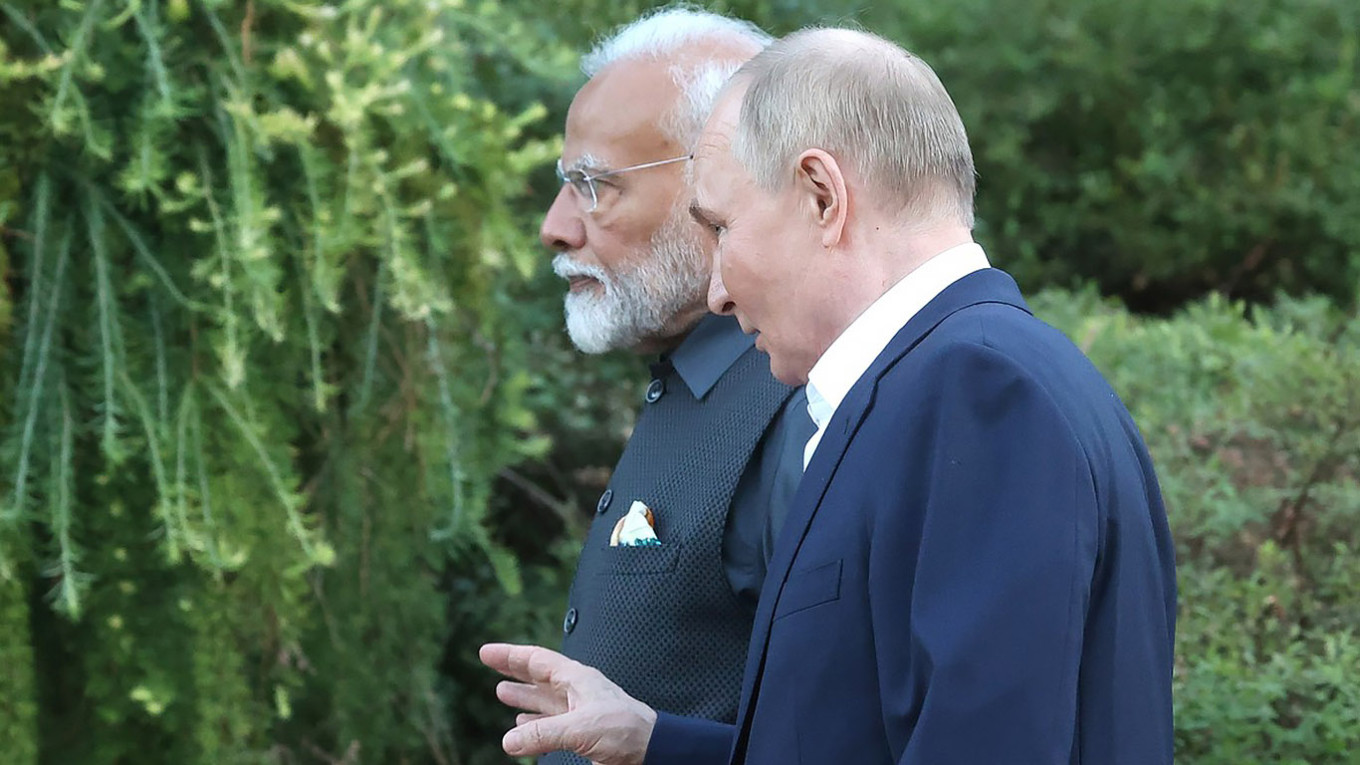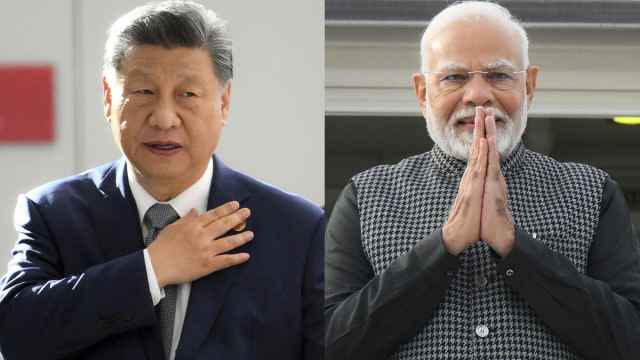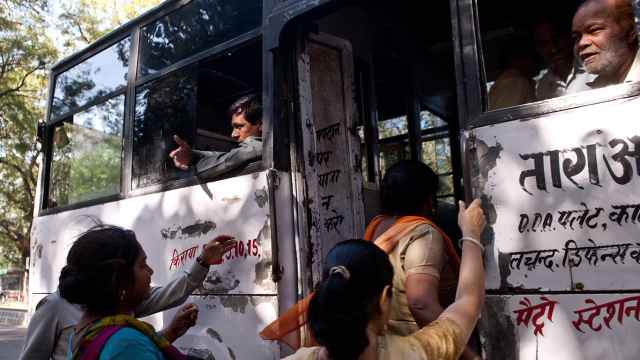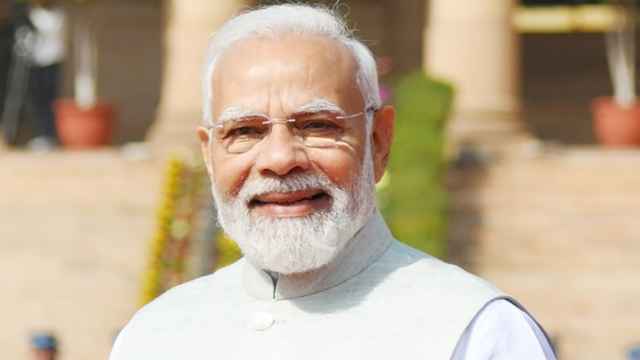After a five-year hiatus, the Indian Prime Minister, Narendra Modi, visited Russia twice in 2024, reaffirming that both countries see their relationship as important. President Vladimir Putin’s imminent visit to New Delhi, scheduled to take place early this year, reflects the trajectory of India-Russia relations, whose drivers have been undergoing a re-calibration over the last decade.
Since the invasion of Ukraine, New Delhi’s relations with Moscow have come under considerable flak from the West, as India abstained from condemning Russia’s invasion and refused to join international sanctions.
With Moscow’s access to Western markets curtailed because of these sanctions, economic relations between India and Russia have surged. As a result, bilateral trade surged from a mere $12 billion before the war to $65 billion in 2023, making India Russia’s second-largest trading partner. As India imports crude oil from Russia, Delhi’s exports of consumer electronics, machinery and mechanical appliances are increasing. To boost trade, the Indian Central Bank has allowed Russian entities to open special Vostro accounts, enabling them to keep their funds in Indian banks. This has resolved a major segment of the payment issues between the two countries.
As the economic partnership improved over the years, the military-technical partnership, considered the bedrock of India-Russia relations since the days of the Cold War, has declined. The share of defense imports from Russia has declined from 76% in 2009 to 36% in 2023. This decline is attributed to India’s plans to diversify its defense procurement beyond Russia by importing arms from Western countries, such as France and the U.S.
This is because of the regional security calculus, especially Chinese belligerence in the Himalayas and the Indian Ocean, resulting in New Delhi wanting to bolster its response capabilities by procuring cutting-edge military platforms and developing its domestic production. The Russian military’s attention being focussed on Ukraine and its military-industrial complex catering to its needs has resulted in delays being reported in the deliveries of the remaining squadrons of the S-400 missile defense system and supply spares of the existing Russian weapons systems and platforms in the Indian arsenal.
However, sanctions have tested relations between New Delhi and Moscow. India’s tech giant Infosys had to shut down its Russian operations in 2022 and major conglomerates like TATA group and L&T had to limit their work. In 2024, with the potency of sanctions increasing, New Delhi reiterated that it would not purchase LNG from sanctioned projects such as Arctic LNG-2. Furthermore, in the last days of the Biden administration, the US-sanctioned Gazpromneft and Surgutneftegas, along with 183 vessels that ship Russian oil above the price cap of $60 per barrel, will have an impact on India’s oil imports from Russia.
Further concerns prevail in New Delhi about the improvement of Russia-China relations. In the 2020s, Beijing became Moscow's largest trading partner and ramped up military cooperation in the form of increased naval drills and joint exercises. Additionally, China purchased the S-400 missile systems and SU-35 fighter jets from Russia. With Beijing’s importance increasing in Moscow’s calculus, helping the Russian economy by staying afloat to a certain degree has made Moscow increasingly dependent on China.
However, while India is confident that this development is not impacting its relations with Russia, Indian policymakers are concerned that warming relations between Russia and China may have ramifications for New Delhi’s defense ties with Russia if Moscow prioritizes its relationship with Beijing, potentially leaving the Indian armed forces undersupplied.
However, new trends diversification trends should not be misconstrued as New Delhi’s disinterest in Russian weapons. India’s armed forces still rely on Russian military platforms. These include T-72 and T-90 tanks; SU-30 MKI, MiG-29, and MiG-29K fighter jets; KA-31 helicopters; the Admiral Gorshkov aircraft carrier; and Akula and Kilo-class submarines.
Recently, the armed forces began replacing the domestically made INSAS rifle with the Russian AK-203. Beyond the Cold War influence on procurement, Russian military imports remain more affordable, come with fewer conditions, and offer greater prospects for technology transfer. Russia has consistently supported India’s bid for military indigenization. Recently, New Delhi expressed interest in purchasing the Voronezh radar system, which has a range of 6,000 kilometers, for $4 billion.
With Putin’s visit around the corner, this continued is likely on the agenda of the upcoming 23rd annual India-Russia summit. Furthermore, Putin and Modi will likely discuss increasing bilateral trade and cooperation in the Russian Far East, the Arctic, the Northern Sea Route and increasing traffic along the Chennai-Vladivostok economic corridor. Settling payments and sanctions-proofing bilateral trade will be another major point of discussion. Further, the repatriation of the Indians who were fraudulently coerced into signing contracts with the Russian army will be another point on the agenda, along with discussions on how Putin plans to end the war in Ukraine.
In Putin’s calculus, visiting India is a diplomatic victory for Russia. India is a key security and economic partner of several Western countries and a major power in the global South, but it is still willing to engage with Moscow. This visit signals that the West's efforts to diplomatically and politically isolate Russia have seemingly failed. For India, Putin’s visit reinforces New Delhi’s commitment to carving a multipolar world order by engaging with all major powers.
Since the 1990s, New Delhi has prioritized improving relations with the West. Most of the country’s elites maintain a Westward orientation, with Western soft power holding greater appeal for Indians than Russia’s. However, the West often overlooks the recalibration occurring in India-Russia relations, overestimating what drives their cooperation. As a result, Western commentators frequently exaggerate the scale at which India bolsters the Kremlin’s coffers by purchasing Russian energy and maintaining economic relations, leading to calls for secondary sanctions against Indian entities.
However, from New Delhi’s perspective, India has remained largely insulated from external geopolitical events and its longstanding policy of strategic autonomy. Thus, its relationship with Russia makes sense This approach has allowed the two countries to continue collaborating as the latter’s role in India’s military arsenal has diminished. Despite these changes, both countries are finding new areas for cooperation to ensure the relevance of their partnership.
A Message from The Moscow Times:
Dear readers,
We are facing unprecedented challenges. Russia's Prosecutor General's Office has designated The Moscow Times as an "undesirable" organization, criminalizing our work and putting our staff at risk of prosecution. This follows our earlier unjust labeling as a "foreign agent."
These actions are direct attempts to silence independent journalism in Russia. The authorities claim our work "discredits the decisions of the Russian leadership." We see things differently: we strive to provide accurate, unbiased reporting on Russia.
We, the journalists of The Moscow Times, refuse to be silenced. But to continue our work, we need your help.
Your support, no matter how small, makes a world of difference. If you can, please support us monthly starting from just $2. It's quick to set up, and every contribution makes a significant impact.
By supporting The Moscow Times, you're defending open, independent journalism in the face of repression. Thank you for standing with us.
Remind me later.






